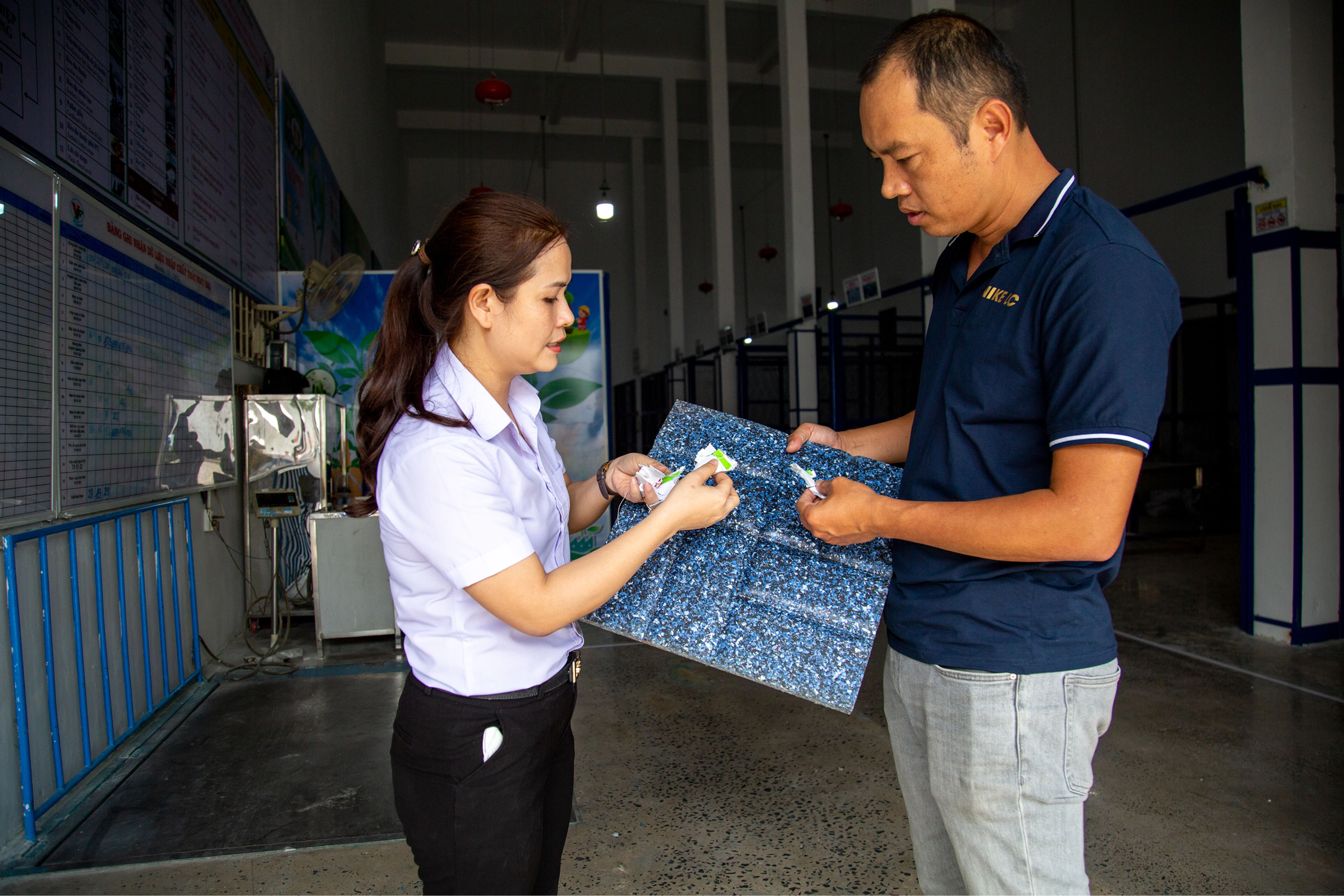Worker Voice
We believe that a skilled, valued and engaged workforce is key for growth and sustainability. We are supporting suppliers to engage with and value their people because we know that high employee engagement leads to a more efficient, agile and committed workforce which results in beneficial outcomes for both the individual and the organization.
Not only are engaged workers more likely to have a greater feeling of wellbeing, but they are also more likely to be more productive and have lower rates of absenteeism. Having an engaged workforce is proven to fundamentally shift overarching business issues such as compensation, overtime and workplace conditions.

This two-phase program is the backbone of our work in supporting improved engagement and wellbeing throughout our supply chain. During phase one, suppliers partner with a NIKE-approved service provider to deploy NIKE’s Engagement and Wellbeing (EWB) Survey to a statistically significant sample size of workers to establish a baseline for current engagement levels. The survey is anonymous.
During phase two, suppliers take those insights and create a transparent action plan to build their capabilities, integrating worker engagement and wellbeing processes into their overall human resources approach to enhance the holistic worker experience and instill a culture of feedback. We require that results be communicated to workers within 28 days of survey deployment.
Since 2017, we have strategically scaled it to reach more suppliers and, by the end of FY24, reached 100% of strategic suppliers participating in the EWB program, covering 128 supplier facilities and around 700,000 workers in 17 countries and regions. By the end of FY24, 75% of strategic suppliers had completed both phases. While we have been scaling the deployment of this survey to reach more facilities across our extended supply chain, measuring worker engagement is just the start. We also are actively supporting suppliers in building capabilities that will increase engagement.
We support suppliers in building capabilities that help increase engagement. We continue to evolve tools and advance capabilities to help suppliers convert the insights from their EWB Survey into actions that positively impact workers. These include the EWB Action Planning Guide, which helps facilities develop and implement a process for converting insights from workers into action and embed these practices into their human resources management systems. In FY24, 100% of our strategic suppliers and survey service providers completed this training, helping equip organizations across our ecosystem to hear the voices of workers and create plans to successfully improve their experience.
Nike views it as critical that workers have access to effective channels through which to raise grievances when they arise.
We require suppliers to implement an effective grievance process enabling workers to raise concerns about their experience on the job, such as working conditions, company policies and procedures and terms and conditions of employment. Suppliers are also expected to document and track grievances, inclusive of response time, to help measure the effectiveness of the grievance process.
Additionally, Nike maintains a “Speak Up” Portal, which can be accessed anytime online or by phone. It is available to supply chain workers to report concerns directly to Nike.
Nike also participates in the Fair Labor Association (FLA) Third Party Complaints Mechanism, a multi-stakeholder complaints mechanism which is useful as a means of increasing leverage in situations where individual organizations approach the FLA with concerns or when Nike is not the only buyer for a factory. The Third-Party Complaint Mechanism allows any person, group or organization to report serious concerns about workers’ rights as a tool of last resort when all other channels have failed. Nike seeks to address and remediate credible and substantiated concerns raised through this mechanism, where sufficient details are provided for Nike to conduct a proper investigation into the relevant allegations that could lead to remediation or another meaningful resolution. Outcomes of the procedure have included reinstatement of unfairly dismissed workers with back pay, recognition of trade unions, establishment of training and education programs for management and workers and improved relations between workers and management.